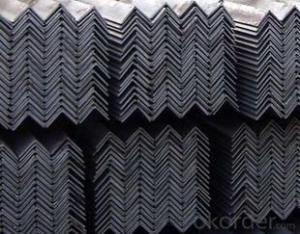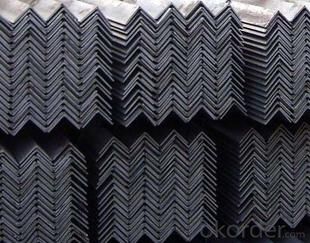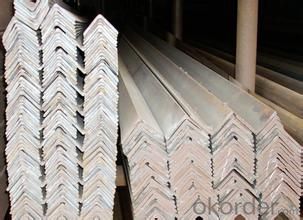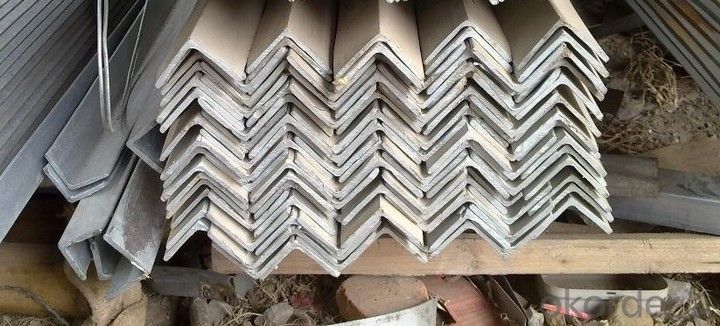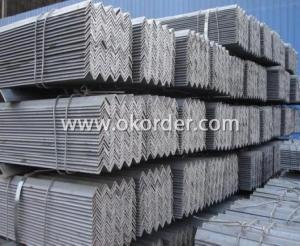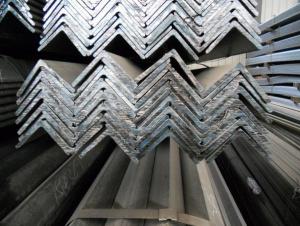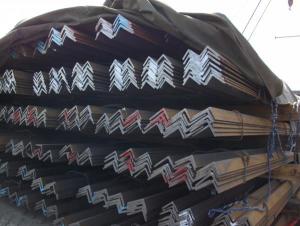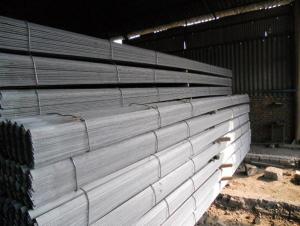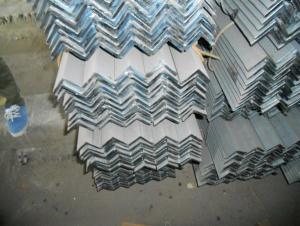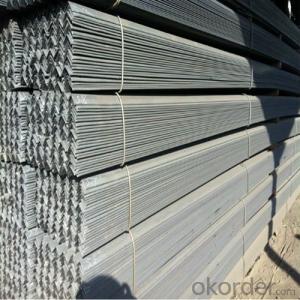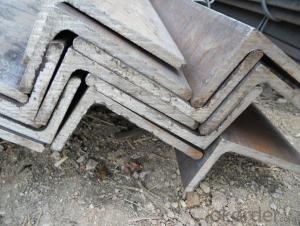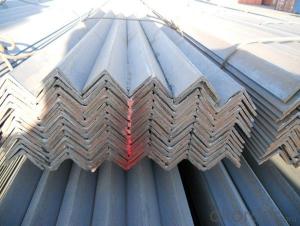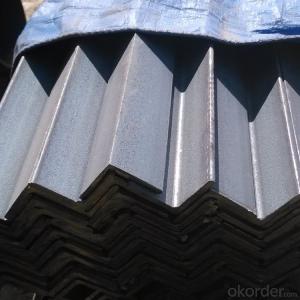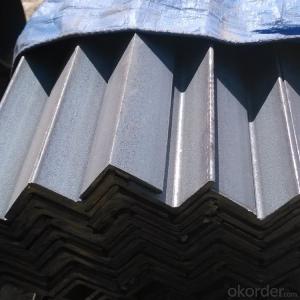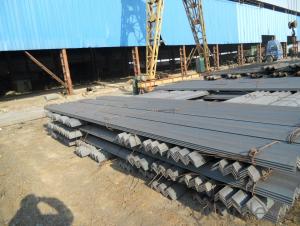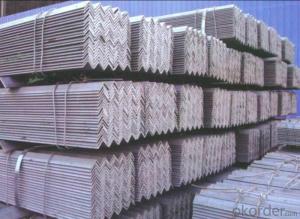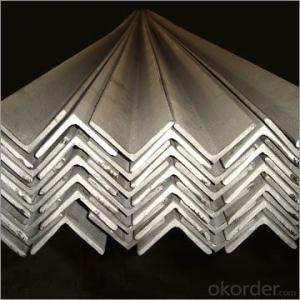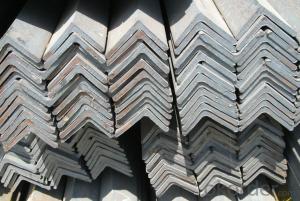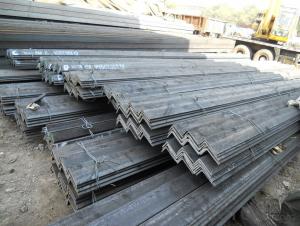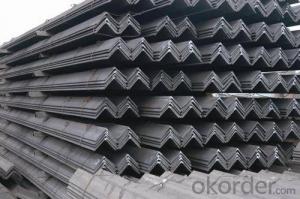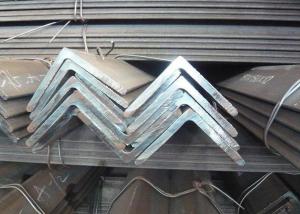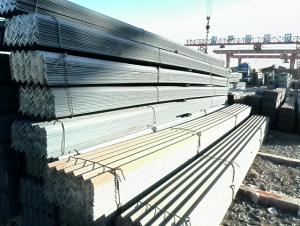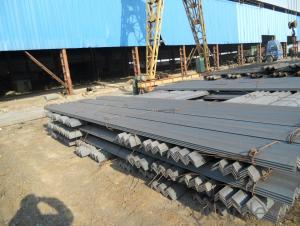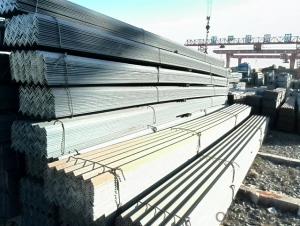A60*60*6 galvanized angle steel for construction
- Loading Port:
- Tianjin
- Payment Terms:
- TT OR LC
- Min Order Qty:
- 25 m.t.
- Supply Capability:
- 10000 m.t./month
OKorder Service Pledge
OKorder Financial Service
You Might Also Like
Product Description:
Packaging & Delivery
| Packaging Detail: | Containers Or With Other Clients' Requirements. |
| Delivery Detail: | within 15 days |
Specifications
angle steel
1. Standard: AISI,ASTM,BS,DIN,GB,JIS
2. Dimension: 10*10mm-200*200mm
3. Length: 3m - 12m
s235jrg hot dip galvanized equal unequal steel angle angle steel
| Standard | AISI,ASTM,BS,DIN,GB,JIS |
| Dimension | 10*10mm - 200*200mm |
| Grade | Q195-Q420 Series |
| Place of origin | Tianjin China (Mainland) |
| Brand Name | DC METAL |
| Model Number | 2#-20# |
| Type | Equal |
| Application | construction |
| Length | 3-12m |
1.MOQ:20 Ton
2.Material:Q195,Q235
3.Size:0.7--3mm
4.Used for:upvc door and window
| Name | steel lining,steel angles,steel framing ,metal frames, The doors and windows strengthen steel |
| Technique | Cool rolled |
| Thickness | 0.7~~3.0mm |
| Dimensions | 12mm*150mm*1.5mm(Size range Or Other Size According To The Contract) |
| Length | 5.8m usually Or Other Size According To The Contract. |
| Steel Material | Q195-Q235 |
| Type | C,L,U,or Profiled steel angle. |
| Application | The doors and windows strengthen steel. |
| Surface | Bared Or Painted, Galvanized Or Clients’ Option. |
| Country of Origin | China(mainland) |
| Package | Containers Or With Other Clients' Requirements. |
| Port | Tianjin |
| Delivery Time | Within 15 days(30% in advance) |
Sdandards: | ASTMA53,ASTMA106,BS1139,BS1387-1985,GB/T3091-2001,EN39
| |||||
Material: | Q195,Q235,Q345,A53,A36,SS400,SS330,ST37-2,08YU,
| |||||
Technical: | welded:longitudinal welded,SSAW
| |||||
Application | Construction structure,furniture,shipbuilding,petroleum, | |||||
Power,gas metallurgy | ||||||
Package | Hex bundle by steel strip | |||||
In bulk | ||||||
anti-water plastic woven | ||||||
As your requirement | ||||||
Place of origin | Tianjin China | |||||
transaction conditition | Trade terms: EXW,FOB,CIF,C&F | |||||
Delivery time: 10-20days after receiving your deposits | ||||||
Payment term: 30% by TT in advance | ||||||
Load port: Tianjin Xingang Port | ||||||
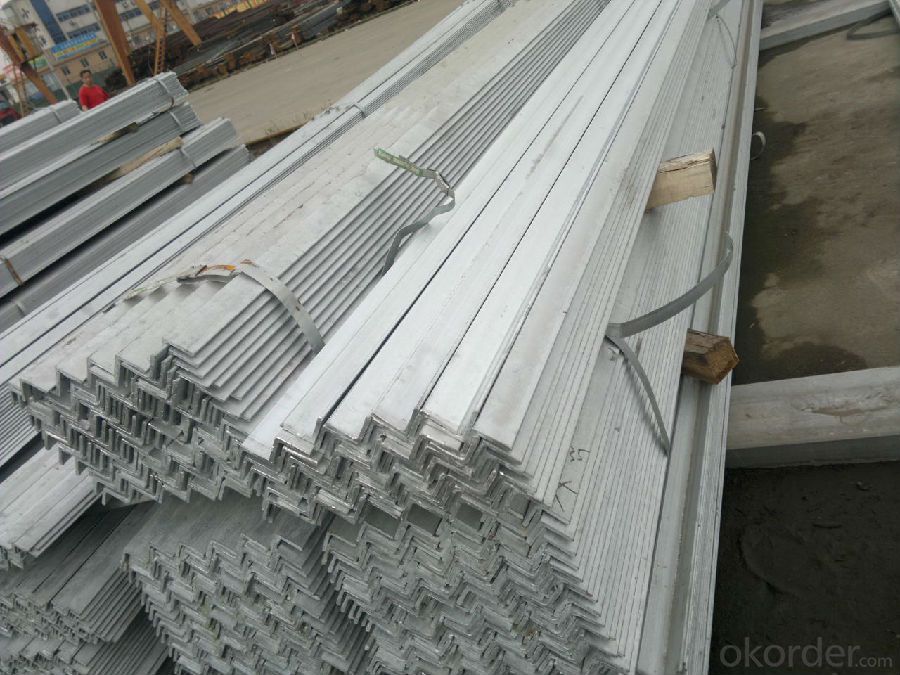
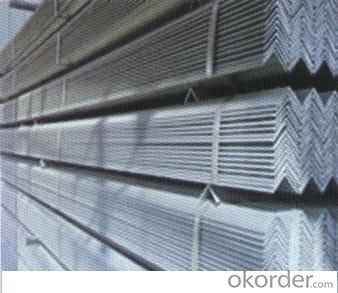
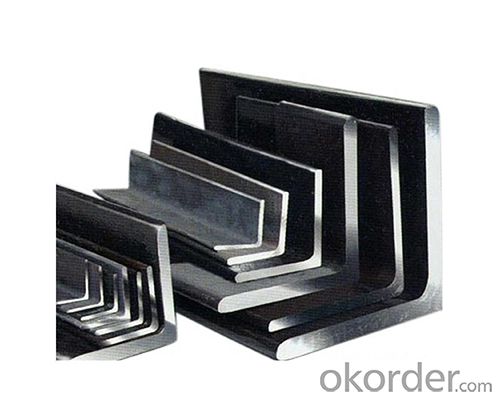
- Q: How do you determine the axial capacity of a steel angle?
- To determine the axial capacity of a steel angle, several factors need to be taken into consideration. Firstly, it is important to determine the yield strength of the steel angle. This is typically provided by the manufacturer and can be found in material specifications. The yield strength represents the maximum stress the steel angle can sustain without experiencing permanent deformation. Next, the cross-sectional area of the steel angle needs to be calculated. This can be done by measuring the dimensions of the angle, such as the thickness and the length of the legs. The cross-sectional area is then calculated by multiplying the thickness by the sum of the two leg lengths. Once the cross-sectional area is determined, the axial capacity can be calculated by multiplying the yield strength by the cross-sectional area. This will provide the maximum load that the steel angle can carry in a purely axial direction without failure. It is important to note that there are other factors that can affect the axial capacity of a steel angle, such as the presence of holes or notches, the slenderness ratio, and the loading conditions. Therefore, it is recommended to consult relevant design codes, standards, or engineering handbooks for more in-depth guidance and to account for these additional factors.
- Q: What are the tolerance specifications for steel angles?
- The tolerance specifications for steel angles vary depending on the specific standards and requirements set by the industry or application. These specifications typically include tolerances for dimensions such as length, width, and thickness, as well as tolerances for straightness, squareness, and surface finish. It is important to refer to the relevant standards or consult with manufacturers to determine the exact tolerance specifications for steel angles in a particular context.
- Q: What are the different surface treatments available for steel angles?
- Steel angles can be treated with different surface treatments, each with its own advantages and uses. Some common surface treatments for steel angles are galvanization, painting, powder coating, and hot-dip coating. Galvanization involves applying a layer of zinc to the steel angles. This treatment offers excellent protection against corrosion, making it suitable for outdoor and marine applications. The zinc layer acts as a sacrificial barrier, safeguarding the steel from rust and other forms of corrosion. Another popular surface treatment for steel angles is painting. This involves adding a coat of paint to the angles, providing both aesthetic appeal and protection. The paint can be customized to match specific color requirements and offers additional resistance against environmental factors like moisture and UV radiation. Powder coating is a technique that involves applying a dry powder to the angles and then heating it to create a durable and attractive coating. This treatment offers exceptional resistance to scratches, chemicals, and fading, making it a preferred choice for industrial and architectural applications. Powder coating also provides a wide range of color options and a smooth, even finish. Hot-dip coating is a process where the angles are immersed in molten zinc. This creates a thick, bonded coating that offers exceptional corrosion resistance. Hot-dip coating is commonly used in industries like construction, infrastructure, and automotive, where the angles will be exposed to harsh environments. To summarize, there are various surface treatments available for steel angles, including galvanization, painting, powder coating, and hot-dip coating. Each treatment offers unique benefits and protection, making steel angles suitable for different industries and applications.
- Q: Can steel angles be used for bracing or reinforcement?
- Bracing or reinforcement purposes can be achieved with steel angles. These L-shaped structural steel members, also known as angle irons, are commonly utilized in construction and engineering. Their shape and structural properties make them highly suitable for offering bracing or reinforcement in various structures. To reinforce beams, columns, or trusses and provide added strength and stability, steel angles are used. They can also function as bracing elements to counter lateral loads like wind or seismic forces, thereby preventing structural failure. Moreover, steel angles can be easily installed as they can be welded, bolted, or riveted to other structural members, exhibiting great versatility. The choice of steel angle size and thickness relies on the specific application and load requirements. It is crucial to consult a structural engineer or adhere to applicable building codes and regulations to guarantee appropriate use and installation of steel angles for bracing or reinforcement purposes.
- Q: What is the maximum allowable tensile stress for a steel angle?
- The maximum allowable tensile stress for a steel angle depends on the specific grade and type of steel being used, as well as any relevant industry standards or regulations that may apply. Therefore, it is not possible to provide a specific answer without further information.
- Q: How do you calculate the bending capacity of a steel angle?
- To calculate the bending capacity of a steel angle, you need to determine the moment of inertia of the angle section and the maximum allowable stress. The moment of inertia is calculated using the dimensions of the angle section, and the maximum allowable stress is typically provided by the steel manufacturer. By applying these values to the appropriate bending equation, you can calculate the bending capacity of the steel angle.
- Q: Can steel angles be bolted together?
- Indeed, it is possible to bolt steel angles together. Steel angles find frequent application in construction and fabrication endeavors, and bolting emerges as a prevalent technique for their connection. By bolting steel angles together, a robust and reliable linkage is achieved, capable of enduring substantial loads and forces. Typically, the angles are drilled with holes at designated intervals, through which bolts are inserted and secured with nuts, thereby fastening the angles together. This approach facilitates effortless disassembly and reassembly when necessary, rendering it a versatile and pragmatic option for joining steel angles.
- Q: How do steel angles perform in corrosive or acidic environments?
- Steel angles exhibit strong performance in environments that are corrosive or acidic, but their effectiveness is contingent upon the type of steel employed and the specific conditions of the environment. For instance, stainless steel angles possess exceptional resistance to corrosion and can endure exposure to acidic environments without substantial deterioration. This is due to their high chromium content, which generates a protective layer on the surface upon contact with oxygen, thereby impeding further corrosion. Conversely, carbon steel angles demonstrate heightened vulnerability to corrosion in corrosive or acidic environments. They lack the same degree of chromium content and protective layer, rendering them more susceptible to rusting and degradation when confronted with such circumstances. Consequently, in these scenarios, supplementary protective coatings or treatments, such as galvanization or painting, may be necessary to augment their corrosion resistance. Moreover, the severity and concentration of corrosive or acidic substances within the environment can also influence the performance of steel angles. Elevated concentrations of acids or corrosive substances can expedite the corrosion process, even for stainless steel angles. Consequently, it is essential to meticulously evaluate the specific environment and select the appropriate steel material and protective measures accordingly to ensure optimal performance and longevity in corrosive or acidic environments.
- Q: What is the maximum load capacity for a steel angle bracket?
- The maximum load capacity for a steel angle bracket can vary depending on factors such as the size, thickness, and quality of the bracket. It is best to consult the manufacturer's specifications or engineering guidelines to determine the specific maximum load capacity for a particular steel angle bracket.
- Q: How do you handle and install steel angles on a construction site?
- To handle and install steel angles on a construction site, one must carefully plan and pay attention to detail. Here is a breakdown of the necessary steps: 1. Site preparation: Before handling steel angles, it is crucial to properly prepare the construction site. This involves clearing debris and obstructions, ensuring a stable and level surface, and taking necessary safety precautions. 2. Measurement and marking: Accurate measurements of the steel angles' dimensions and their placement on the site are essential. Use a measuring tape to determine length, width, and thickness, and mark their intended locations. This guarantees proper alignment and fit during installation. 3. Handling and transport: Steel angles can be heavy, so it is important to use appropriate lifting equipment like cranes, hoists, or forklifts. Ensure that the lifting equipment is rated correctly and operated by trained personnel to prevent accidents or damage to the steel angles. 4. Securing the angles: Once the steel angles are in place, use suitable fasteners such as bolts, screws, or welding to secure them. The choice of fasteners depends on the project's requirements and the load-bearing capacity of the steel angles. Follow manufacturer guidelines and industry standards for proper fastener selection and installation. 5. Alignment and leveling check: After securing the angles, use a level and measuring tools to check their alignment and levelness. This step ensures correct installation and the necessary structural support. 6. Inspection and reinforcement: Thoroughly inspect the installed steel angles to ensure they are free from defects or damages. If any issues are found, take appropriate action to reinforce or replace the angles, maintaining the site's structural integrity. 7. Ongoing maintenance: Regular maintenance is necessary to extend the lifespan of steel angles and prevent corrosion. Follow manufacturer recommendations and periodically inspect the angles to address any issues promptly. In conclusion, handling and installing steel angles on a construction site require careful planning, proper equipment, and adherence to safety guidelines. By following these steps, construction professionals can ensure successful installation, contributing to the overall strength and stability of the structure.
Send your message to us
A60*60*6 galvanized angle steel for construction
- Loading Port:
- Tianjin
- Payment Terms:
- TT OR LC
- Min Order Qty:
- 25 m.t.
- Supply Capability:
- 10000 m.t./month
OKorder Service Pledge
OKorder Financial Service
Similar products
Hot products
Hot Searches
Related keywords
